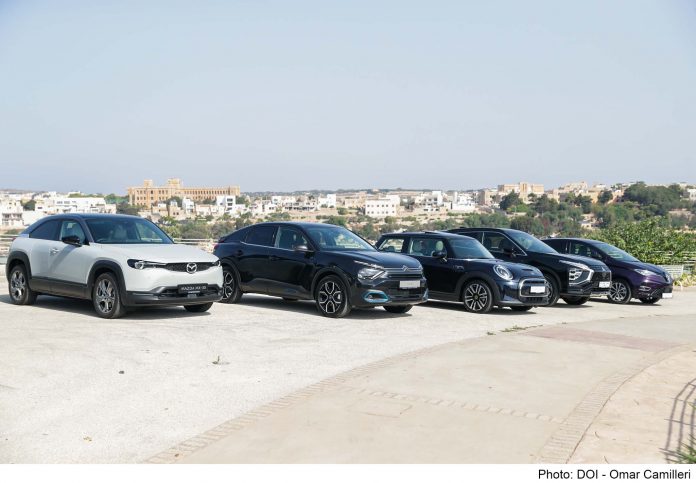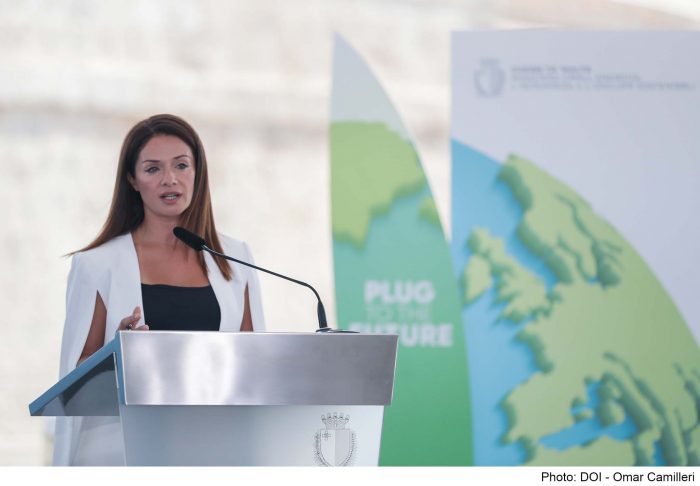
Policy paper and new regulations setting competitive rates are now open for consultation
Malta’s first national policy paper on the public charging infrastructure has been launched for public consultation, together with new regulations that set amongst the most competitive rates across the European Union and advantageous tariffs for consumers.
The launch of the policy paper and regulations place Malta amongst the first EU countries to have such a system in place.
During the press conference, Minister for Energy, Enterprise and Sustainable Development Miriam Dalli explained how the new tariffs have been set to encourage the shift towards electric vehicles. This, whilst encouraging the private sector to be part of this transition to a cleaner economy.
“We are working to strengthen our commitment to de-carbonise our economy. Malta, for the first time, is offering an organised system that gives visibility to both the investor and the client. What we presented today also addresses the needs of electric vehicle drivers and the local market,” explained Minister Miriam Dalli.

“This is a sector with the potential to open up new green job opportunities. We have seen a strong interest from those who want to invest in this sector over the last few weeks. Thus, we want to offer stability to those who wish to invest.”
Minister Dalli explained that the launch of the national policy is based on a series of public consultations with various entities and stakeholders, both by the government and the private sector, as well as in consultation with various local councils and the Association of Local Councils. Further feedback will be gathered through the public consultation to further update this policy.
The tariffs announced today are for both residential and non-residential buildings.
In the case of private residences, the peak tariff is being offered under the standard band system, whilst the off-peak tariff is of €0.1298. In the case of non-residential, the tariff at peak times is set at €0.1485, whilst the off-peak tariff will be of €0.1298.
“We are offering competitive rates which are amongst the lowest in the EU because we want to incentivise the transition to cleaner cars on our roads,” emphasised Minister Miriam Dalli.
For instance, the lowest tariff in Norway is €00.18c. The average tariff from various operators in Germany is €00.31c5. In Poland, the average fee is €00.36c. In Italy, the tariff is €00.45c.
The national policy emphasises the importance of the interoperability of charging pillars. This is to enable customers to use any charging pillar around Malta and Gozo, regardless of who the operator is. This is also being done to open up the market and increase accessibility for electric vehicle owners.
The guidelines launched today will be matched by a new regulation covering the provision of the service by charging pillar operators. In order to ensure a high-quality service, operators will need to have a license. This also places Malta at the forefront of EU countries in providing a structured system without awaiting a mandatory directive to do so.
The policy paper and regulation are available for consultation as of today, August 25th, until the end of September. These can be accessed on the website www.consultation.gov.mt, and comments may be sent via email to chargingpillars.mesd@gov.mt.









